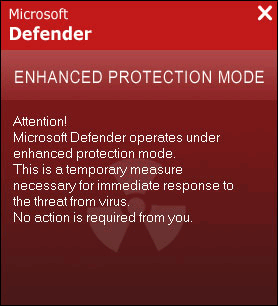'Facebook Page Has Infringed Copyright Information' Scam
Cybersecurity professionals have identified a deceptive scheme aimed at acquiring sensitive information from unsuspecting individuals. The culprits responsible for this fraudulent activity utilize misleading SMS and Facebook messages to entice users into accessing an unsafe phishing page, where they are prompted to reveal their Facebook login credentials. It is highly recommended that individuals exercise caution and refrain from engaging with messages related to the 'Facebook Page Has Infringed Copyright Information' scam to safeguard their personal information.
Victims of The 'Facebook Page Has Infringed Copyright Information' Scam Could Suffer Serious Privacy Issues
The messages of this fraudulent scheme masquerade as being directed to an 'admin page.' They claim to be notifications concerning a policy violation, alleging that the recipient's page has supposedly breached copyright information.
The communication escalates by asserting that the account has been identified for violating the current copyright policy, emphasizing security risks and the potential for permanent deactivation. To rectify this issue, recipients are provided with specific instructions to follow.
In case of non-compliance, users are warned that they risk their accounts being automatically blocked. The messages include a link disguised as a verification step for the related accounts. Clicking on the provided link takes users to a phishing page that prompts them to enter their email address or phone number, along with their Facebook login password.
However, all of the entered information is transmitted to fraud-related actors, granting them unauthorized access to the victims' Facebook accounts. The fraudsters could then exploit the compromised accounts in a multitude of different ways. Identity theft becomes a looming threat as the fraudsters leverage personal information stored on Facebook profiles to impersonate legitimate account holders. Additionally, the fraudsters may misuse compromised accounts to disseminate phishing schemes, spreading malware or deceptive content within the victim's network.
The scollected accounts could also become tools for social engineering attacks, where con artists manipulate relationships associated with the account to extract sensitive information or gain access to other online platforms. Essentially, the theft of Facebook accounts opens avenues for a spectrum of unsafe activities, presenting a substantial threat not only to the account holders but also to their social circles.
Typical Signs That May Indicate That You Are Dealing with a Phishing Tactic
Recognizing phishing tactics is crucial for maintaining online security. Here are some typical warning signs that users can look out for to identify a phishing scheme:
- Unsolicited Emails or Messages:
Be wary of unexpected emails or messages, especially those urging immediate action.
Avoid clicking on links or downloading attachments in unsolicited communications. - Requests for Personal Information:
Legitimate organizations typically do not request sensitive information (such as passwords or credit card details) via email or messages.Be cautious if asked to provide personal information in response to an email or message. - Urgent or Threatening Language:
Phishing emails often create a sense of urgency, claiming that immediate action is required to prevent negative consequences. Watch out for threatening language or warnings that pressure you to act quickly. - Poor Grammar and Spelling:
Phishing emails may contain spelling and grammatical errors. Legitimate organizations generally maintain a professional standard in their communications. - Unexpected Attachments:
Avoid opening unexpected email attachments, as they may contain malware.
Confirm with the sender through a separate, trusted channel if you receive unexpected attachments. - Generic Greetings:
Phishing emails often use generic greetings like "Dear User" instead of addressing you by your name. Legitimate organizations usually personalize their communications with your name. - Unusual Requests for Money or Gift Cards:
Be suspicious of emails or messages requesting money or gift cards, especially if the request is unexpected and seems out of context. - Inconsistent Branding:
Legitimate organizations maintain consistent branding in their communications. Be cautious if logos, colors, or formatting appear different from what you usually see.
By staying vigilant and paying attention to these warning signs, users can enhance their ability to identify and avoid falling victim to phishing tactics. Regularly updating security software and educating oneself on emerging phishing tactics also contribute to a more secure online experience.


